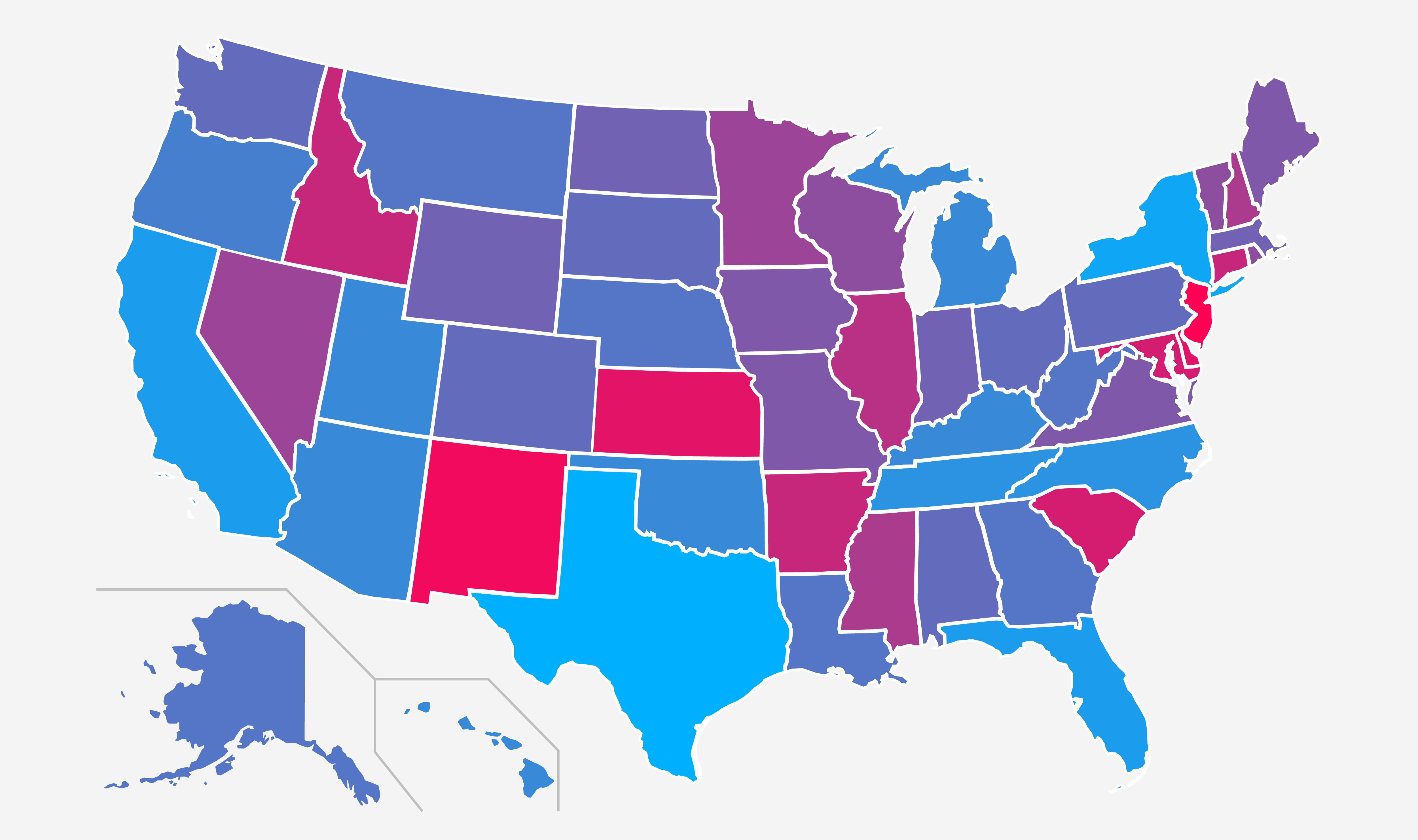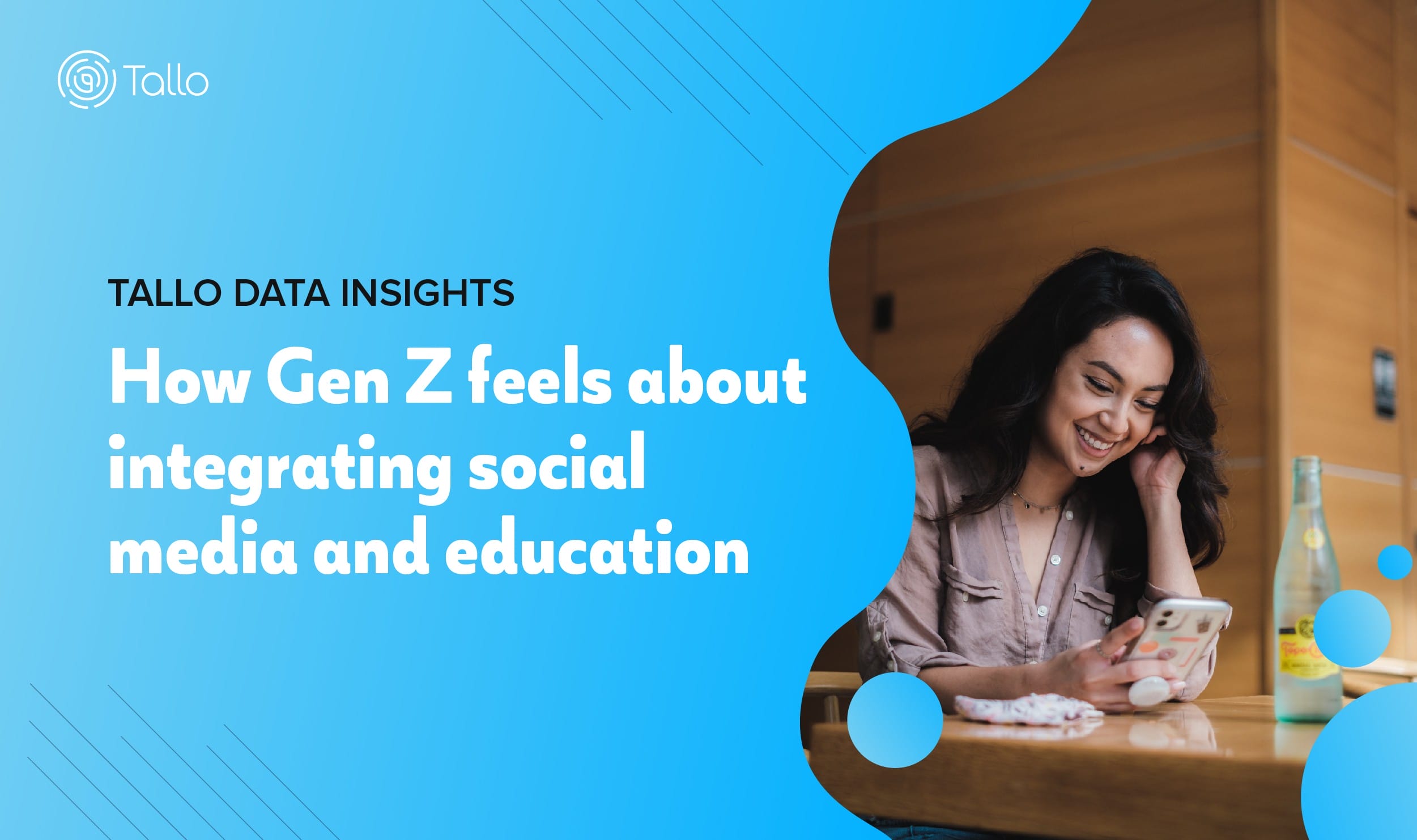Data are clear: Gen Z expects masks and vaccines as part of their college experiences, and 83% say college COVID-19 policies are a major factor in going back to school
As summer ends and we transition into a new school year, the COVID-19 virus is once again at the forefront of students’, educators’, and families’ minds. Despite months of rolling out the vaccine across the country, the more infectious Delta variant has led to a resurgence of transmissions and infections of the virus. A previous survey conducted by our partners at Stride Inc. indicated that K-12 parents’ are feeling anxiety about the risk of sending their students back to school, despite their desire to resume in-person learning. In order to learn how Gen Z high school and college students are feeling about returning to school, we surveyed over 2,500 Tallo users. The results show that the majority of Gen Z is prioritizing COVID-19 safety precautions at their current or future colleges and universities of choice.
“The results of this latest survey are indicative of how Gen Z is preparing for the new school year,” said Casey Welch, CEO and Co-founder of Tallo. “Students are taking the risks inherent to contracting COVID-19 — or passing it on to a family member who may be immunocompromised — seriously, and they expect masks and vaccinations to go hand in hand with their college experience.”
Member of Generation Z are still worried about COVID
Generation Z is sending its message loud and clear: 83% of students say college COVID-19 policies are a major factor in going back to school.
They understand and are concerned about the risk for both themselves and their families. Seventy-seven percent are concerned about becoming infected with COVID-19. An additional 83% are concerned about spreading COVID-19 to a family member, and the majority (57%) are “very concerned” about the possibility of this risk.
What’s more, 79% of Gen Z survey respondents are concerned about the possibility of schools being forced to go virtual again this year due to the COVID-19 virus.
Gen Z is taking precautions against COVID
The majority of Gen Z survey respondents (68%) have already received the vaccine. Another 11% of those surveyed plan to receive the vaccine, while a mere 9% aren’t interested in receiving the COVID-19 vaccine, and 7% remain unsure. While fewer than one in ten aren’t interested in getting the vaccine, only 7% reported that their parents and/or guardians would not support their decision to receive it.
Gen Z expects their schools & employers to take COVID precautions
When it comes to post-secondary education, 68% of Gen Z indicated that they are likely to attend a college that requires vaccines for enrollment.
This young generation does not seem to be opposed to mask mandates: 86% believe it’s important for unvaccinated individuals to wear masks in public spaces, and 68% believe the same for vaccinated individuals. More than three out of four Gen Z students reported that they’re likely to attend a college or university that requires them to wear a mask. This type of mask mandate does not appear to concern them, as 77% don’t feel that wearing masks in an educational setting will negatively impact their ability to learn, and 88% are likely to work for an employer that requires masks. Similarly, 68% reported that they’re likely to attend a college or university that will require them to receive the COVID-19 vaccine.
Communities are reacting to COVID-19 precautions differently
It’s important to note that while Gen Z respondents in general, appeared to agree on many aspects of COVID-19, we did see some significant variations in responses based on students’ racial and ethnic identities, as well as their geographic locations.
While 32% of all Gen Z survey respondents are “very concerned” about becoming infected with COVID-19 and 57% are “very concerned” about spreading COVID-19 to a family member, these numbers are twice as high for survey respondents who identify as Hispanic or Latino, Black or African American, or Asian than for survey respondents who identify as white. Thirty-nine percent of survey respondents who identify as Hispanic or Latino, 43% of survey respondents who identify as Black or African American, and 37% of survey respondents who identify as Asian are “very concerned” about becoming infected with COVID-19, while only 20% of survey respondents who identify as white are. Similarly, while only 47% of survey respondents who identify as white are “very concerned” about spreading COVID-19 to a family member, that number jumps up to 67% for those who identify as Hispanic or Latino, 63% for those who identify as Black or African American, and 62% for respondents who identify as Asian.
We saw similar differences in regard to opinions about both vaccinated and unvaccinated individuals wearing masks in public. Fifty-three percent of survey respondents who identify as white think it’s important for vaccinated individuals to wear masks in public spaces, and 77% think it’s important for unvaccinated individuals to wear masks in public. However, 82% of survey respondents who identify as Black or African American, 82% of survey respondents who identify as Asian, and 78% of respondents who identify as Hispanic or Latino think it’s important for vaccinated individuals to wear masks in public spaces, and 94%, 95%, and 91%, respectively, think it’s important for unvaccinated individuals to wear masks in public.
These differences also appear to carry over to Gen Z’s expectations for colleges’ and universities’ approach to COVID-19. Fifty percent of survey respondents who identify as white are very likely to attend a college that mandates masks, while 70% of respondents who identify as Hispanic or Latino, 69% of respondents who identify as Black or African American, and 63% of survey respondents who identify as Asian are very likely to do that same. Similarly, 45% of survey respondents who identify as white are very likely to attend a college that mandates vaccines, while 62% of survey respondents who identify as Asian, 57% of respondents who identify as Hispanic or Latino, and 53% of respondents who identify as Black or African American are very likely to do that same. There are also differences for these expectations for colleges’ COVID-19 precautions based on students’ geographic location: while only 52% of respondents who live in a rural area are likely to attend a college with a vaccine mandate, that statistic jumps to 71% for those in a suburban area, and 72% for those in an urban area.
Overall, Gen Zers who identify as Black or African American are nearly twice as likely to find COVID-19 rules as “very important” (63%) than Gen Zers who identify as white (34%) and Gen Zers who live in an urban area are significantly more likely to view these rules as “very important” (56%) than those who live in rural areas (37%), while the opinions of those Gen Zers in suburban areas lie somewhere in the middle (44%).
Gen Z is optimistic
When we asked Gen Z to describe how they’re feeling about attending an in-person school in the Fall, the number one response was “hopeful” (32%). Encouragingly, “excited” was the response that received the second highest number of votes (29%), while only 13% described their attitude as “anxious.”
With these results, current students across the country send a clear directive to their schools and educators: they want to be kept safe from COVID-19, and they’re ready to embrace precautions, including vaccinations and mask mandates.







